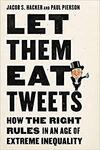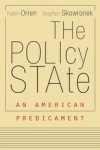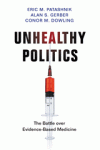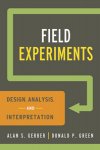Publications
About Our Publications
On this page you will find a list of publications by ISPS Affiliates, including peer-reviewed journal articles, policy briefs, and working papers.
When possible, Publications are linked to Projects and Data via the ISPS KnowledgeBase.
|
Title |
Author(s) | Discipline | Publication | Year |
|---|---|---|---|---|
| Exploiting Donald Trump: Using Candidates’ Positions to Assess Ideological Voting in the 2016 and 2008 Presidential Elections |
Andrew Gooch and Gregory A. Huber |
Political Science | Presidential Studies Quarterly | 2018 |
| Health Risks and Voting: Emphasizing Safety Measures Taken to Prevent COVID-19 Does Not Increase Willingness to Vote in Person |
Gregory A. Huber, Alan S. Gerber, and Scott E. Bokemper |
Political Science | American Politics Research | 2023 |
| House Members on the News: Local Television News Coverage of Incumbents |
Gregory A. Huber and Patrick D. Turner |
Political Science | British Journal of Political Science | 2024 |
| How Issue Positions Affect Candidate Performance: Experiments Comparing Campaign Donors and the Mass Public |
Andrew Gooch and Gregory A. Huber |
Political Science | Political Behavior | 2020 |
| How Robust Is Evidence of Partisan Perceptual Bias in Survey Responses? A New Approach for Studying Expressive Responding |
Yair Omer and Gregory Huber |
Political Science | Public Opinion Quarterly | 2021 |
| Identifying Legitimacy: Experimental Evidence on Compliance with Authority |
Eric S. Dickson, Sanford C. Gordon, and Gregory A. Huber |
Political Science | Science Advances | 2022 |
| Identifying the Effect of All-Mail Elections on Turnout: Staggered Reform in the Evergreen State |
Alan S. Gerber, Gregory A. Huber and Seth J. Hill |
Political Science | Political Science Research and Methods | 2013 |
| Identifying the Persuasive Effects of Presidential Advertising |
Gregory A. Huber, Kevin Arceneaux |
Political Science | American Journal of Political Science | 2007 |
| Institutional Sources of Legitimate Authority: An Experimental Investigation |
Eric S. Dickson, Sanford C. Gordon and Gregory A. Huber |
Political Science | American Journal of Political Science | 2014 |
| Irrelevant Events and Voting Behavior: Replications Using Principles from Open Science |
Matthew H. Graham, Gregory A. Huber, Neil Malhotra, and Cecilia Hyunjung Mo |
Political Science | Journal of Politics | 2021 |
| Is Affective Polarization Driven by Identity, Loyalty, or Substance? |
Lilla V. Orr, Anthony Fowler, and Gregory A. Huber |
Political Science | American Journal of Political Science | 2023 |
| Is There a Secret Ballot? Ballot Secrecy Perceptions and Their Implications for Voting Behaviour |
Alan S. Gerber, Gregory A. Huber, David Doherty and Conor M. Dowling |
Political Science | British Journal of Political Science | 2012 |
| Local Demographic Changes and US Presidential Voting, 2012 to 2016 |
Seth J. Hill, Daniel J. Hopkins, and Gregory A. Huber |
Political Science | Proceedings of the National Academy of Sciences | 2019 |
| Mass Support for Proposals to Reshape Policing Depends on the Implications for Crime and Safety |
Paige E. Vaughn, Kyle Peyton, and Gregory A. Huber |
Interdisciplinary | Criminology & Public Policy | 2022 |
| Measuring Misperceptions: Limits of Party-Specific Stereotype Reports |
Lilla V. Orr, Gregory A. Huber |
Political Science | Public Opinion Quarterly | 2021 |
| Messages Designed to Increase Perceived Electoral Closeness Increase Turnout |
Daniel R. Biggers, David J. Hendry, and Gregory A. Huber |
Political Science | American Politics Research | 2023 |
| Nongovernmental Campaign Communication Providing Ballot Secrecy Assurances Increases Turnout: Results From Two Large-Scale Experiments |
Alan S. Gerber, Gregory A. Huber, Albert H. Fang and Andrew Gooch |
Political Science | Political Science Research and Methods | 2017 |
| Not by Turnout Alone: Measuring the Sources of Electoral Change, 2012 to 2016 |
Seth J. Hill, Daniel J. Hopkins, and Gregory A. Huber |
Political Science | Science Advances | 2021 |
| On the Meaning of Survey Reports of Roll‐Call “Votes” |
Seth J. Hill and Gregory A. Huber |
Political Science | American Journal of Political Science | 2019 |
| On the Merits of Separate Spaces: Why Institutions Isolate Cooperation and Division Tasks |
Scott E. Bokemper and Gregory A. Huber |
Political Science | Political Behavior | 2023 |
ISPS Working Paper Series
ISPS advances interdisciplinary research in the social sciences that aims to shape public policy and inform democratic deliberation. The ISPS network includes scholars and students from many departments in the Faculty of Arts and Sciences and from Yale’s graduate and professional schools as well as select experts from other institutions. The ISPS Working Paper Series provides a platform for ISPS affiliates to make their work available for public consumption and discussion.
Featured Books by ISPS Faculty
ISPS Sponsored Publications
ISPS Politics & Policy Book Series: A series striving to place policy- and law-making in historical and comparative perspective, reflecting the broad, multidisciplinary character of ISPS.
ISPS Journal: A biannual publication that serves to highlight ISPS scholars’ publications and as a development piece for foundations and interested donors.
GOTV website: A website compiling results from a wide array of voter mobilization field experiments. Findings from these scientifically measured studies of various Get-Out-the-Vote methods offer valuable insight into which methods are most effective in mobilizing voter turnout (Note: the website indexes GOTV experiments published before 2006).
The Bulletin of Yale University includes several issues devoted to ISPS (PDF): 2000-2002, 2002-2004, 2004-2006, and 2006-2008.






